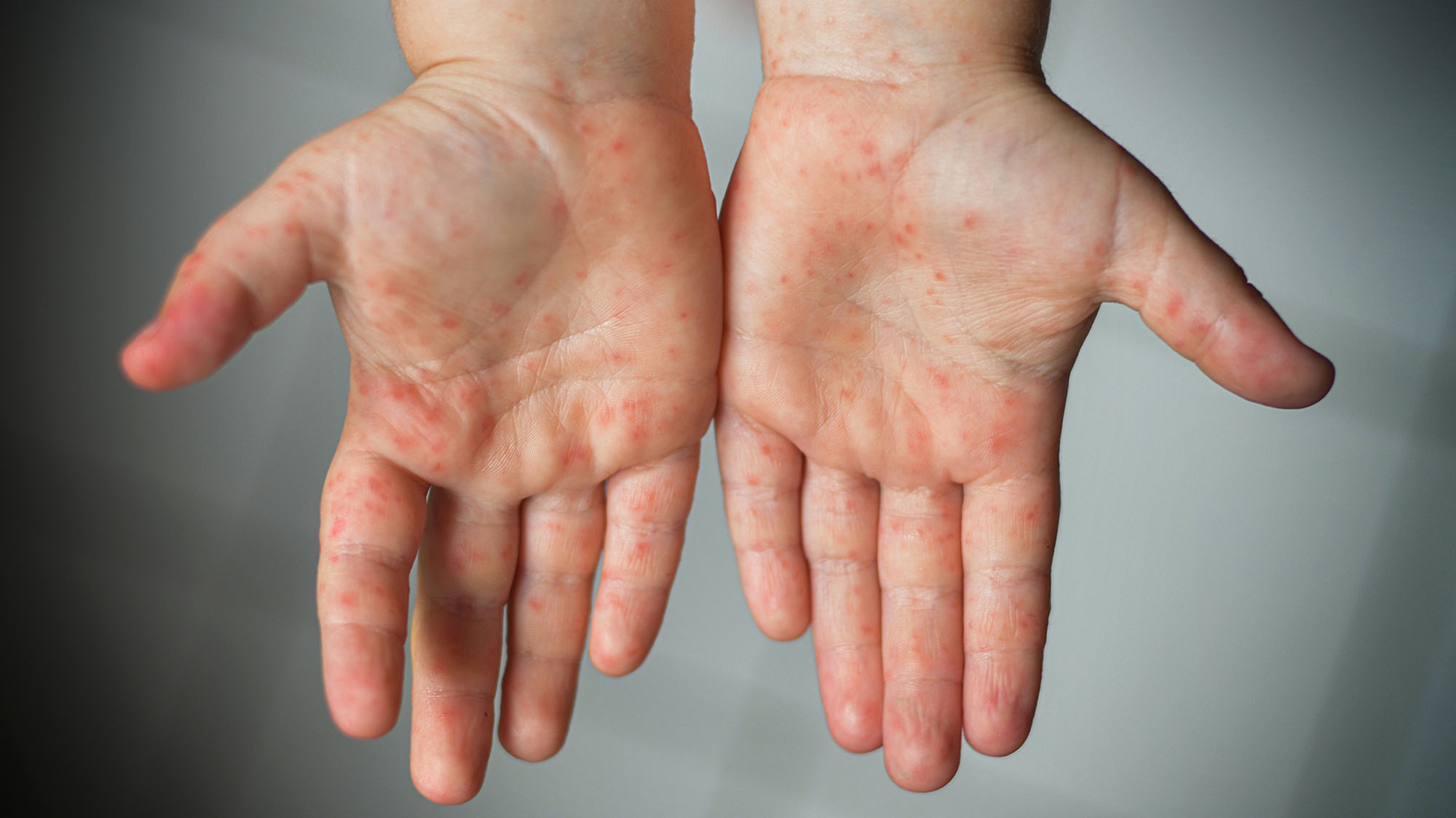The Gauteng Department of Health says an outbreak of measles in the province has revealed a “concerning immunity gap”, particularly among children who are either not fully vaccinated or have never received the measles or rubella vaccine.
This follows a continued rise in measles cases in Gauteng, with a total of 181 laboratory-confirmed cases reported between 1 January and 13 June this year. Many of these cases have occurred in the Johannesburg, Tshwane and Ekurhuleni districts.
“This persistent outbreak follows previous clusters dating back to 2022, which led to a measles vaccination campaign in 2023. In the latest reporting period (1-13 June), Gauteng recorded 15 new measles cases, 10 of which were reported in Tshwane, two in Johannesburg, two in Ekurhuleni, and one in West Rand,” said Motalatale Modiba, the spokesperson for the Gauteng health department.
According to data published by the National Institute for Communicable Diseases (NICD), there were 40 cases of measles in Gauteng in May — the highest of any month so far this year.
Modiba said the department had intensified its public health response to the outbreak. In the “hotspot areas” of Mamelodi and Winterveld in Tshwane, it has launched an “aggressive” targeted vaccination campaign in schools.
More than 18,000 learners had been vaccinated in more than 15 schools in Mamelodi, and 16 schools in Winterveld, according to Modiba.
“Inter-facility immunisation has also commenced, offering measles-rubella booster doses to all age groups regardless of prior vaccination history,” he said.
“There have been 16 reported hospital admissions linked to measles in Tshwane, all of whom have since been discharged. No deaths have been reported. Health facilities have been instructed to isolate positive cases and vaccinate close contacts immediately.”
Immunisation coverage
According to Modiba, immunisation coverage for the second dose of the measles vaccine remained below 75% in both Johannesburg and Tshwane, which is significantly below the level required to prevent outbreaks.
“This has contributed to the steady increase in cases, including among individuals who had previously been vaccinated, and even among some adults,” he said.
“In the Johannesburg district, the department implemented a targeted response by vaccinating contacts and conducting outbreak campaigns in areas such as Diepsloot, Midrand, Cosmo City, Hillbrow and Rosettenville. To date, more than 3,500 people have been vaccinated in the district, with further campaigns scheduled for busy community sites, including the Diepsloot and Cosmo City taxi ranks.”
In Ekurhuleni district, 560 children had received vaccines as part of campaigns in Daveyton, Slovo Park, Tembisa and Barcelona, he said.
The West Rand and Sedibeng districts were not currently affected by the measles outbreak.
Modiba said that the department was working closely with districts to “strengthen surveillance, ensure rapid response and improve vaccination coverage", with plans to embark on a “comprehensive four-week province-wide vaccination campaign” as part of a broader intervention.
Gauteng MEC for Health and Wellness Nomantu Nkomo-Ralehoko urged parents and guardians to ensure their children were vaccinated and to work with health teams conducting community-level campaigns.
“We must close the immunity gap in our communities and prevent further spread of the highly contagious diseases, particularly measles and rubella. Vaccination is simple, safe and is our best protection against harmful diseases,” said Nkomo-Ralehoko.
Identifying measles
Patients with measles present with fever and a rash, according to the NICD. The rash appears as small, red spots that start on the face and head, and spread downwards over the body. These spots are not itchy or painful.
Other symptoms include:
- A cough
- Conjunctivitis (red eyes)
- Coryza (running nose)
Complications of measles can include diarrhoea, dehydration, middle ear infection, brain infection, blindness and death, according to the NICD.
“Complications are more serious in those who catch measles as young infants (under two years of age), in children who are malnourished and people who are immunosuppressed,” said the institute.
“Measles is spread by contact with saliva or mucus droplets from the mouth or nose of an infected person when they breathe, cough or sneeze. These droplets can remain airborne for up to two hours in enclosed areas and can infect susceptible individuals. Measles is one of the most infectious viruses known to humankind.”
The NICD noted that vaccinated individuals were protected from severe symptoms of the disease, usually for the rest of their lives.
“Communities become vulnerable to outbreaks of measles when more than 5% of persons are not vaccinated,” said the NICD.
The Gauteng Department of Health said individuals infected with measles should isolate at home for at least seven days to prevent further transmission.
“All suspected cases are provided with Vitamin A supplements to reduce the risk of complications,” said Modiba. DM




 A total of 181 laboratory-confirmed measles cases have been reported from 1 January to 13 June 2025, with many of these cases emanating from the Johannesburg, Tshwane and Ekurhuleni districts. (Photo: iStock)
A total of 181 laboratory-confirmed measles cases have been reported from 1 January to 13 June 2025, with many of these cases emanating from the Johannesburg, Tshwane and Ekurhuleni districts. (Photo: iStock)